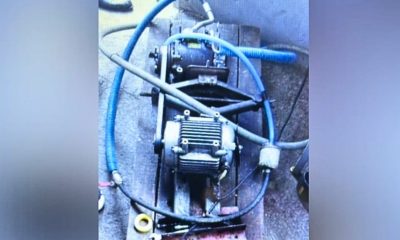Business
Rs 2 Billion Boost for MRA as VAT Rules Change for SMEs

A new measure that will lower the annual turnover threshold for Value Added Tax (VAT) registration from Rs 6 million to Rs 3 million has ignited serious concerns among small and medium-sized enterprises (SMEs). This policy, which comes into effect on October 1, is expected to bring around 7,000 additional businesses under the scope of VAT, according to estimations, generating an estimated Rs 2 billion in extra revenue for the Mauritius Revenue Authority (MRA) annually. Affected businesses must register with the MRA by September 30 and will be required to issue VAT invoices and submit quarterly returns.
Entrepreneurs Fear Administrative Burdens and Client Loss
Entrepreneurs are voicing strong opposition, arguing that the new rules will impose significant administrative burdens on smaller businesses and may stunt their growth.
The SME Chamber had previously advocated for the threshold to remain at Rs 6 million.
Ajay Jhurry, president of the Association of Tourist Operators, expressed concern that the change would disadvantage small suppliers.
He noted that entrepreneurs will be incentivised to buy from VAT-registered suppliers to reclaim tax, potentially causing smaller, non-registered suppliers to lose business.
Stéphane Maurymoothoo, an entrepreneur and founder of the Regroupement des artisans, echoed these sentiments, highlighting the financial strain of the new administrative duties.
“All small businesses do not have the sufficient profitability to bear these costs,” he stated, arguing that the move fails to consider the reality of small businesses’ margins and investments.
Maurymoothoo suggested that the threshold should have been raised, not lowered, given the rising operational costs.
Government’s Focus on Revenue Collection Questioned
Both Jhurry and Maurymoothoo contend that the reform seems primarily focused on increasing state revenue without fully assessing its impact on the SME sector.
They believe a more comprehensive reform, one that considers the challenges faced by small businesses and provides greater support, would have been more beneficial.
Exemptions from the New Rules
Certain business activities are exempt from the new VAT threshold, regardless of their turnover.
This includes the sale of fresh fruits and vegetables, fish, and meat. While newly VAT-registered SMEs will be able to reclaim VAT on raw materials, semi-finished goods, and equipment, this benefit, according to opponents, does not outweigh the costs and complications.
Source: l’Express











